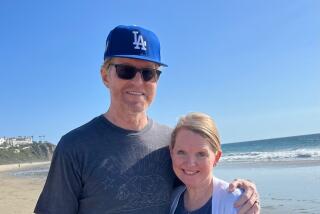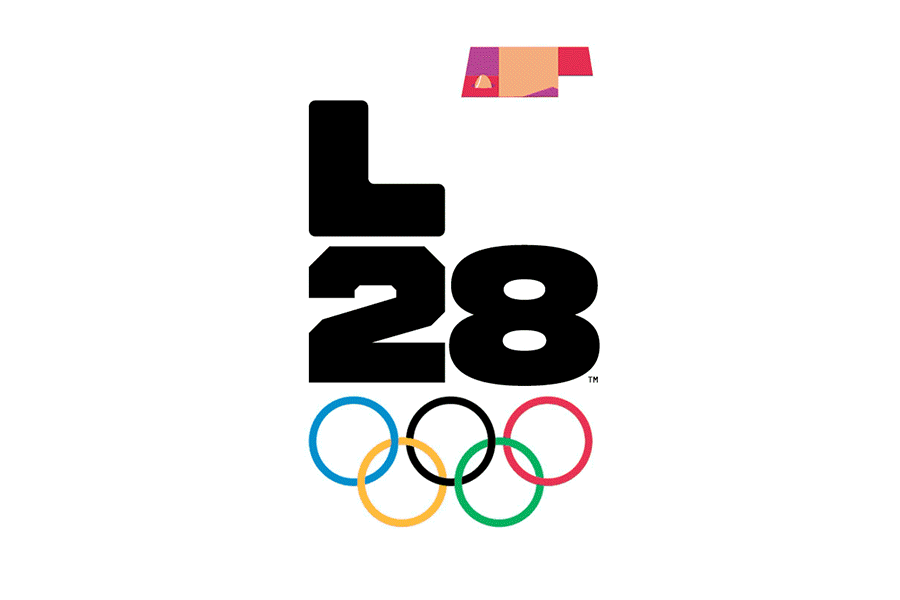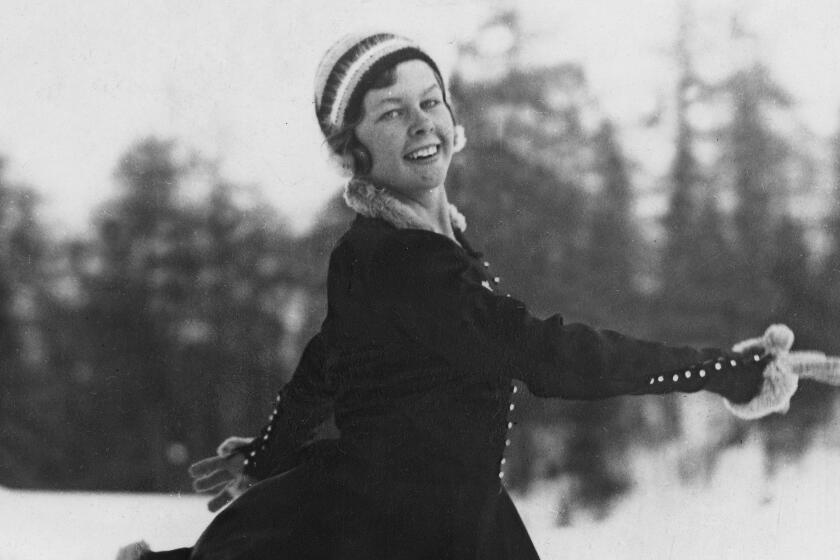THE SEOUL GAMES : Kayak : Barton Makes U.S. History With One Gold, Then Adds Another
The outline of mountaintops was just starting to break through the haze hanging over the Land of the Morning Calm and the sun was finally putting a sparkle on the Han River when Greg Barton paddled his kayak 1,000 meters into a strong, chilly head wind Saturday morning to give the United States its first gold medal ever in a kayak event.
The calm was broken momentarily as the scoreboard flashed, at first, that the gold medal would go to the USA, then that the gold would go to Australia, and, finally, after the photo finish had been studied, that it would be the USA.
Barton had powered his kayak over the finish line .005 second ahead of Grant Davies of Australia. The margin recorded by the electronic-timing devices was so minuscule that it had to be rounded off to the nearest .01 to register on the computer system being used to process results. Officially, Barton’s time was 3 minutes 55.27 seconds and Davies’ time was 3:55.28. Andre Wohllebe took the bronze in 3:55.55.
But while U.S. officials and International Canoe Federation officials and Olympic scorers sorted it out, Barton was paddling easily up and down the Han River, warming down from his spectacular K-1 effort and preparing for his second race, a K-2 race less than an hour later.
Barton, who had won the bronze medal in K-1 in 1984, had actually signed for the silver medal before it was announced that he had won the gold. His first ever. His country’s first ever.
Then, buoyed by the gold medal but physically drained, he went out and won another one.
Decades and decades without a gold medal, and then two before the morning was out. And no one has ever swept the gold in this double. To do it, Barton had to pace a smart race.
Barton, also known as Buck, is a 28-year-old mechanical engineer who lives and trains in Newport Beach and who works for the Fluor Corporation in Irvine. And he’s a 17-year veteran of kayak racing.
Bellingham, who was paddling in the back of the boat during that K-2 race, had to keep reminding himself of that. Barton sets the pace; Bellingham follows it.
Bellingham, 23, is a relative newcomer to the sport after just 4 years of paddling. He got his early training with the New Zealand team, a team that believes in a fast start. Bellingham said: “To have to hang back like that with Greg is foreign to me. Being that far back at the halfway mark was frightening, to say the least. I kept telling myself not to look over so I wouldn’t get psyched out.
“I just said to myself, ‘I hope he knows what he’s doing.’ ”
Not to worry. Barton said that he consciously fought the urge to go out strong, riding the tide of the earlier excitement, and race with the New Zealanders and Australians. Instead, he let those two boats race while he kept a steady, easy pace and saved something for the strong finish.
At 750 meters, the Barton-Bellingham boat was in third place, more than 2 seconds behind the leading Australians and not even on the TV screens back home. Then Barton started to pick up the pace, smoothly and surely, until he and Bellingham were in position to nose out the Australian boat to win a second straight photo finish.
Barton said: “This doesn’t mean my strategy is necessarily better than theirs. It just fits my strength and my training better. My strength is endurance, so I like to pace out the start, and when endurance comes into play, try to finish strong.
Barton and Bellingham won the K-2 race with a time of 3:32.42, just ahead of New Zealand, which took the silver in 3:32.71. Australia took the bronze in 3:33.71.
After the race, Barton changed into the T-shirt signed by all of his co-workers at the Fluor Corporation. As he showed it off, he even moved aside his medal, so none of the names would be covered.
Barton came to Southern California just 2 years ago so that he could train at the Newport Aquatic Center. He got the job at Fluor Industries through the Olympic job opportunities program, a program that matches athletes with jobs in the right area of the country with companies willing to let the athletes have training time.
Barton is originally from Homer, Mich., where his father owns a small pig farm. He got into kayaking because his family enjoyed canoeing, and because, when he was young, he was inspired by meeting 1964 Olympic bronze medalist Marcia Jones Smoke.
Too, it was a sport well-suited to him. Kayakers use only their upper bodies. Barton, who was born with club feet that were made worse instead of better by the surgery that fused the bones in his ankles, walks with a limp, in specially designed shoes.
He mounted the top level of the awards stand carefully, steadying himself with his hands on his knees. And he stood proudly.
More to Read
Go beyond the scoreboard
Get the latest on L.A.'s teams in the daily Sports Report newsletter.
You may occasionally receive promotional content from the Los Angeles Times.





